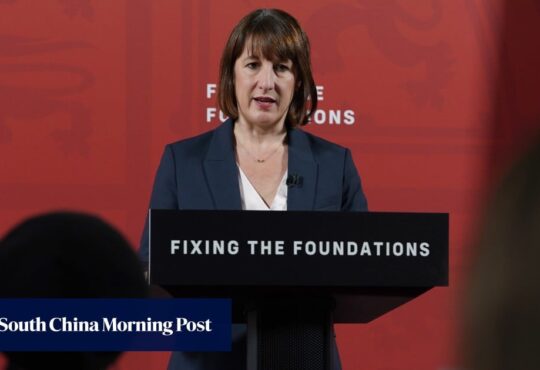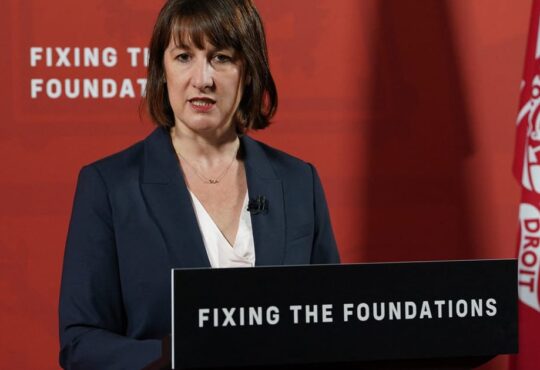
The Work and Pensions Committee has published a far-reaching series of recommendations, following its investigation into defined benefit (DB) pension schemes’ use of liability-driven investment (LDI).
The LDI crisis of autumn 2022 prompted policymakers to question whether DB pension schemes understood the way LDI works, and whether schemes should have been using such complex financial instruments to manage risk in such a widespread fashion.
|
What is LDI? LDI is a popular risk management tool used by DB pension schemes to manage volatility in their funding levels. Until the autumn of 2022, DB schemes had used LDI without major incident. However, after the Liz Truss (pictured) mini-budget of September 2022, market turbulence triggered unprecedented rises in gilt yields. To reduce leverage, LDI funds had to sell their liquid assets or ask their scheme sponsors for more collateral. LDI funds were forced to sell gilts into an illiquid market, fuelling a downward spiral of gilt prices. Ultimately, the Bank of England had to intervene. The crisis prompted policymakers to question whether DB pension schemes understood the way LDI works, and whether schemes should have been using such complex financial products. |
More reporting and engagement
More reflection is needed on how the crisis happened. The report said: “DB pension scheme investments must not be allowed to jeopardise the UK economy again.”
Among a sweeping set of recommendations, the report suggests:
DWP should work with [The Pensions Regulator] (TPR) and [the Pension Protection Fund] (PPF) to produce, by the end of 2023, a detailed account of the impact on pension schemes of the LDI episode.
This should: i) look at the impact on funding levels, detailing how the value of their assets and liabilities changed, showing the results disaggregated by whether the fund used LDI and, if so, whether in a pooled, segregated or bespoke arrangement; and
ii) include analysis of the factors which contributed to scheme funding improving or deteriorating, including the role played by LDI strategies
Leverage has worked well for DB schemes during a long period of low interest rates. However, last autumn demonstrated that conditions can change quickly. The report recommends:
TPR should require trustees to report certain data on their use of LDI and should develop a strategy for engaging with schemes based on the results more closely.
Governance must improve
The report also recommends that TPR should engage more closely with pension schemes on their use of LDI and require trustees to report in more detail on how they are using the instrument.
The Department for Work and Pensions (DWP) and TPR must work together to improve governance, the report says. In the interim, the DWP should consider whether to restrict LDI, based on a test of trustees’ abilities to understand and manage the risks involved.
The committee was also concerned that investment consultants were giving standardized investment advice, rather than thinking through what was best for individual schemes. The government should bring forward plans for investment consultants to be brought into the FCA’s regulatory perimeter by the end of this Parliament, the report suggests.
Resourcing TPR to supervise LDI was another focus of the report’s recommendations. Among its suggestions was: “DWP should report back to us by the end of January 2024 on how it proposes to take forward the FPC’s recommendation that TPR be given a remit to take account of financial stability considerations and how it plans to ensure that TPR has the capacity and capability to deliver on this.”
The report also recommended that DWP and TPR should halt existing plans for a new funding regime until it has produced a full impact assessment for the proposals, including the impact on financial stability and open DB schemes.
Industry responds
The committee’s recommendations were met with a mixed response from the pensions industry. David Fogarty, a director and professional trustee at Dalriada Trustees Limited, welcomed the report, saying: “Trustee boards need to have sufficient skills and competence to scope what advice is required, to challenge the advice when given, and to ensure the appropriate level of controls are in place to monitor risks.
“Complex investments such as LDI cannot be allowed to be nodded through on the back of narrow advice. We look forward to supporting the further development of trusteeship to achieve this elevation across the sector.”
Joe Dabrowski, the PLSA’s deputy director of policy said: “The PLSA supports the recommendations of the Work and Pensions Select Committee to manage the potential risks arising from pension schemes’ use of liability driven investment strategies, which were exposed by the unprecedented volatility episode that followed the mini-Budget last autumn.
However, the Association of Consulting Actuaries (ACA) says the select committee’s findings of “significant weakness in the ability of pension schemes to manage risk” seems completely at odds with the rude health that most UK private scheme find themselves in – with funding levels at unprecedented highs and more schemes than ever now able to afford to secure their members’ benefits in full with an insurance company.
ACA spokesman and Treasurer, Stewart Hastie added, “LDI with appropriate levels of leverage has been, and continues to be, an important and successful risk management tool for UK pensions. In line with their fiduciary duties, LDI helped trustees and their advisers to improve funding levels and member benefit security in the face of decades of low gilt yields and the Bank’s 12-year QE programme.
“There were a small minority of schemes that didn’t fare so well last autumn although many will have started from a better position because of the use of LDI in the years before this. Nevertheless, lessons around managing liquidity risk have and will continue to be learned with the industry moving quickly to adopt higher liquidity buffers and improve governance processes.”
Harus Rai, chair of the Association of Professional Pensions Trustees, cautioned: “The APPT supports the idea of formally increasing the standards of trusteeship for DB pension schemes, but we have to stress that what may appear to be simple steps, like ‘more consolidation’ require very careful thought and policy actions to accommodate the diverse range of UK schemes. A rushed response to this and other areas of the report could easily create new but different financial risks to members’ benefits.”






